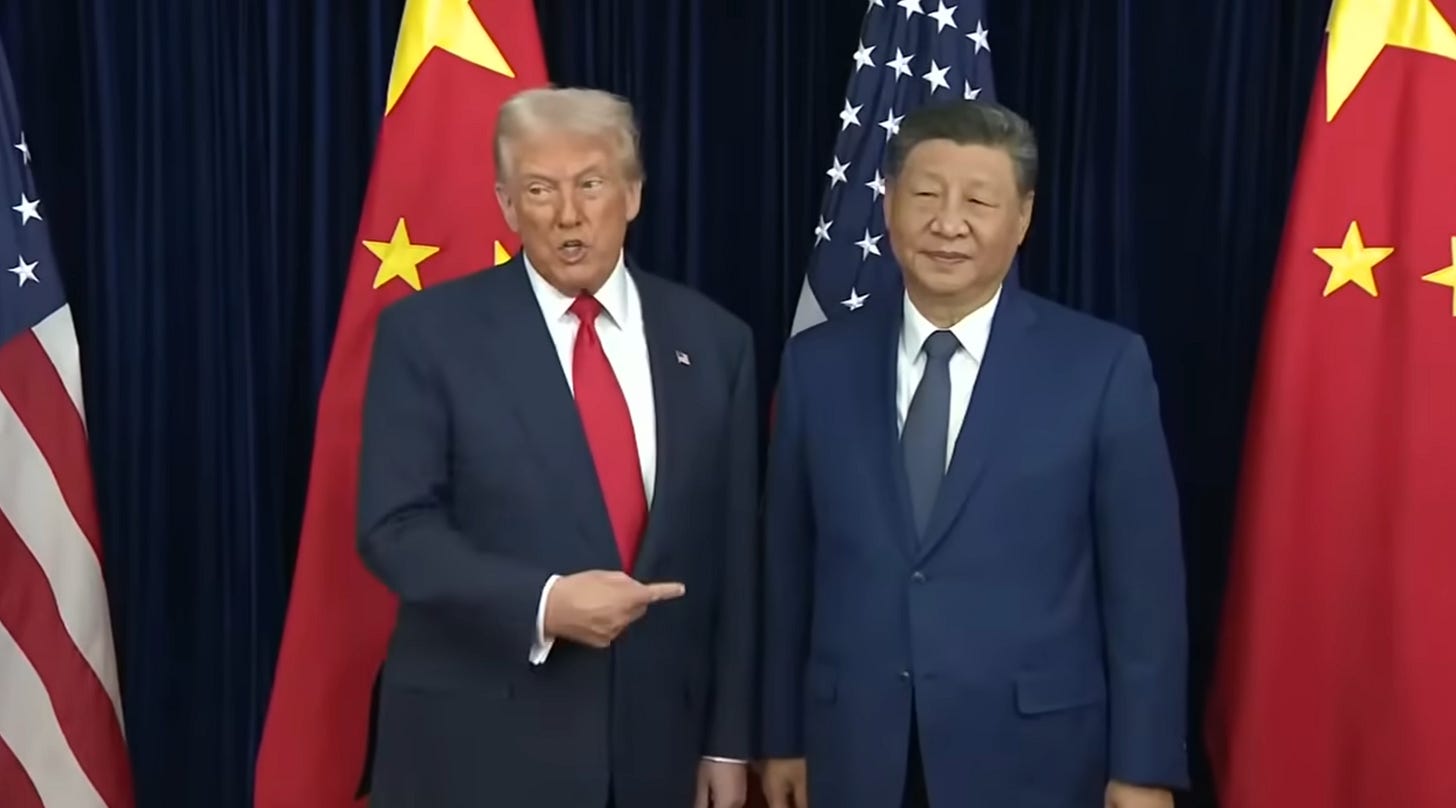The emperor's new deal and the chairman's new tech plan
An extremely underwhelming meeting between Xi and Trump, details on Beijing's drive for tech self-reliance, plus more news and links.

A man without a plan and a man with a plan
Underwhelming Trump-Xi meeting
October 30—Donald Trump met with Xi Jinping in Busan, South Korea for a highly anticipated meeting that was supposed to result in a trade agreement. Trump told reporters flying with him back to Washington: “On a scale from zero to 10, with 10 being the best, I would say the meeting was a 12.”
Xi Jinping did not seem to enjoy the encounter as much, judging from his pained facial expression and silence as Trump babbled on during a pre-meeting press event. And all the meeting actually achieved was to pause recently threatened U.S. tariffs and delay the implementation of China’s new export controls on rare earths. It’s just back to the status quo of a few months ago. Trump himself did not use the word deal about the results of the meeting, saying on his Truth Social platform that he and Xi “agr…


